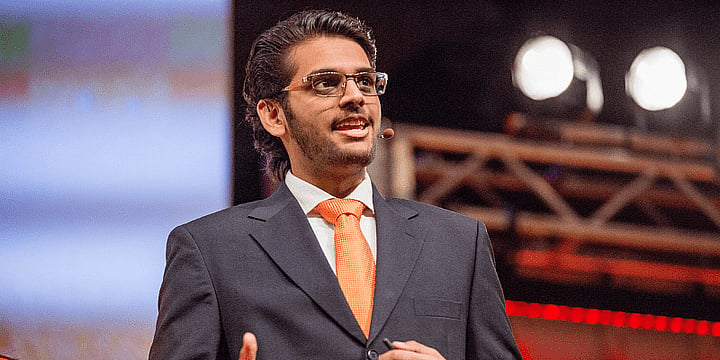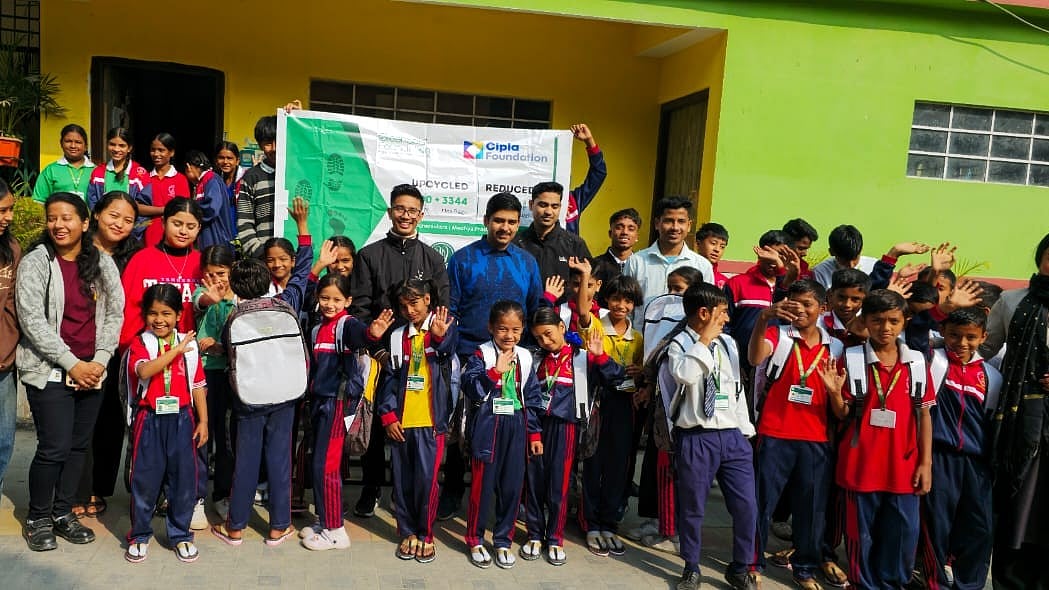Entrepreneur and engineer Lyric Jain founded Logically, an AI-powered platform that helps users navigate the tricky terrain of fake news, misinformation, and disinformation online, in 2017.
The 25-year-old, who is an MIT and Cambridge alum, in an exclusive interview with the Free Press Journal said he observed the breakdown in public discourse during the 2016 United States Presidential Election and the Brexit referendum in the United Kingdom, which got him interested in the phenomenon of fake news.
Jain's UK-based company combines advanced AI with one of the world’s largest fact-checking teams to help governments, businesses and the public uncover and address harmful misinformation and deliberate disinformation online. So far, Logically has worked with the US government and video-sharing app TikTok. The tech company has also worked during the US Elections and the state-level elections in India.
Besides, Logically was in 2020 awarded first place in the News category of the Aatmanirbhar Bharat App Innovation Challenge launched by Prime Minister Narendra Modi. In 2021, it won the 11th Annual AEGIS Graham Bell Award for Innovation in Artificial Intelligence.
1. What got you interested in the phenomenon of fake news and how did you go about your business?
It was a series of strange events that took me to start Logically. It was a family tragedy in 2015. My grandma got a series of disgusting messages on WhatsApp saying drink this special green juice and give up on your cancer medicines and you'll live longer, and unfortunately, she fell for it and we lost her. However, I wasn't still able to relate to misinformation at the time. But in 2016, when I was in the UK, the experience around the Brexit referendum of how people were getting their information got me interested in how online activities and echo chambers were leading to increasing polarisation.
2. In today's day and age when fake news is rampant particularly on social media, how is Logically trying to deal with it?
Social media platforms have a huge responsibility. At Logically, we work closely with the platforms and also with other stakeholders such as civil society bodies, academia, governments, etc. to understand what are the most harmful things existing on social media. We help with fact-checking content or intelligence on who might be manipulating the platforms. We try to prioritize who we believe is at the highest risk for public safety, public health, national integrity, and security. We also try to identify narratives, communities, and individual accounts that might be leading to harmful events.
3. WhatsApp is the most consumed social media platform, and politicians have understood its importance to disseminate their version of the truth. How is Logically helping the general public with this?
It is a challenging problem given the stakeholders involved. So first of all, we don't care if he/she is a politician, we consider them as any normal individual. Some platforms have specific protection for public figures regardless of them saying true or false. There are limitations on what we are able to do on political speeches on certain platforms, but the challenges are quite unique on WhatsApp. It is something we tried out in late 2019, during the Maharashtra Assembly elections, and also very briefly during the 2019 Lok Sabha elections in India. We found that if we provide people access to an automated fact-checking service on WhatsApp, a lot of the time they use them, and if we respond to them promptly enough, they would share the fact check with at least 9-10 other people. So, the same mechanism that the malicious actors are using to promote misinformation, we can use the same to promote fact checks.
4. What are the challenges you have faced while dealing with misinformation during COVID-19?
There was an explosion of misinformation at the start of the pandemic. Due to fake news regarding alternate cures, many people particularly from Asia lost their lives. During the time, the requests (to bust fake news) we were getting were 10 times higher than on regular days. Over the last 18 months, we have published 7000-8000 fact checks only related to COVID-19. Regarding vaccines, people don't have any legitimate concerns but there are many who believe in fake posts like "Bill Gates wants to control you", "COVID vaccines contain a magnetic tracking chip that connects to 5G", etc. There were also targeted campaigns to make sure people didn't get vaccinated. So, we tried to curb that. In India, we launched our Covishala program in partnership with Facebook and worked closely in communities and regions that are vaccine-hesitant.
5. Do you see Logically competing with fact-checking websites in India?
We will hate to compete. It is not our intention and that is not what we want to do. In fact, we want to enable these organisations as fact-checking is incredibly expensive. The growth in the fact-checking community is really impressive in the last 3-4 years. We would not want to compete with that growth but we want to acknowledge that to really work at scaling it up. We want to help these fact-checking organisations with our technology. We have already started working in India with an organisation in Gurgaon and would to work with many more in the future.
Watch Full Video Interview:





